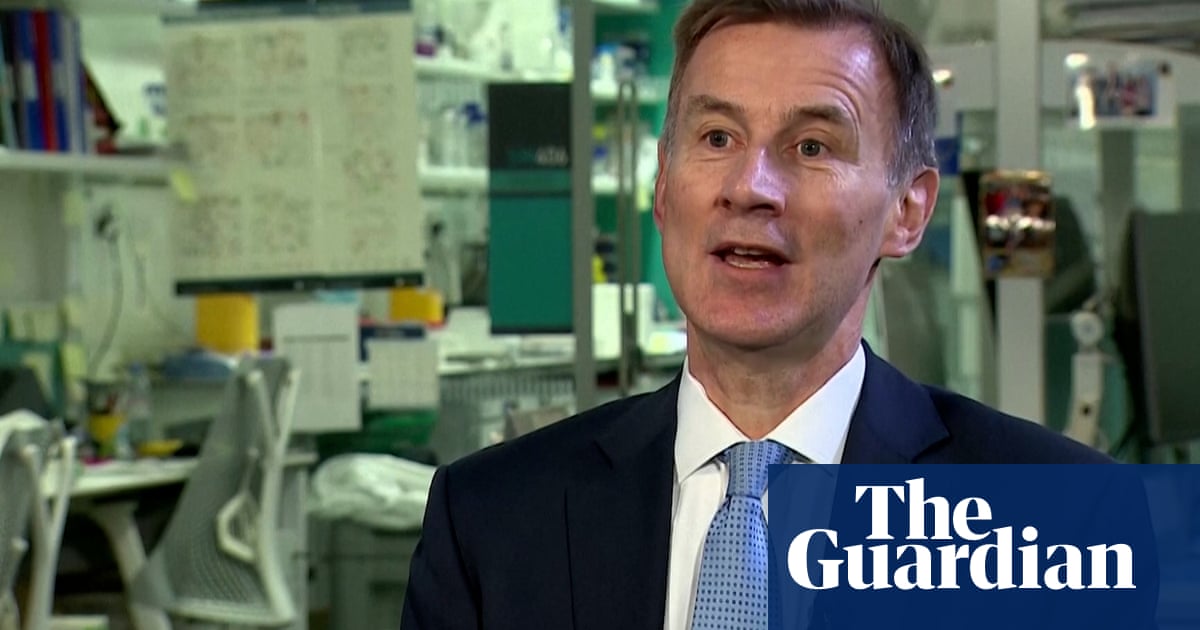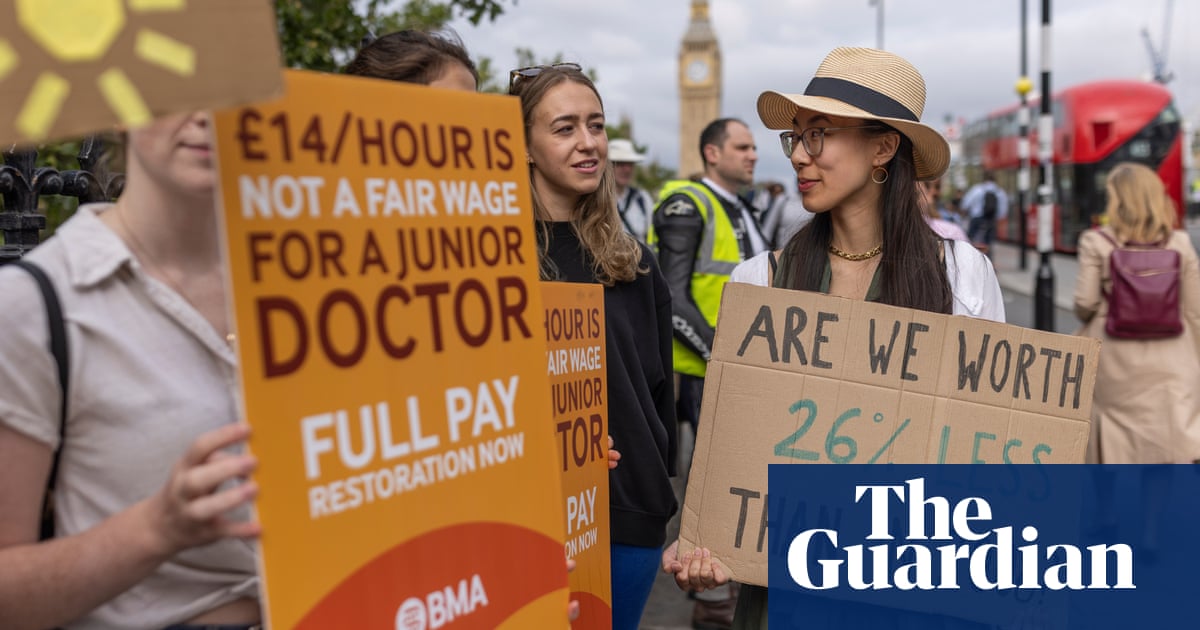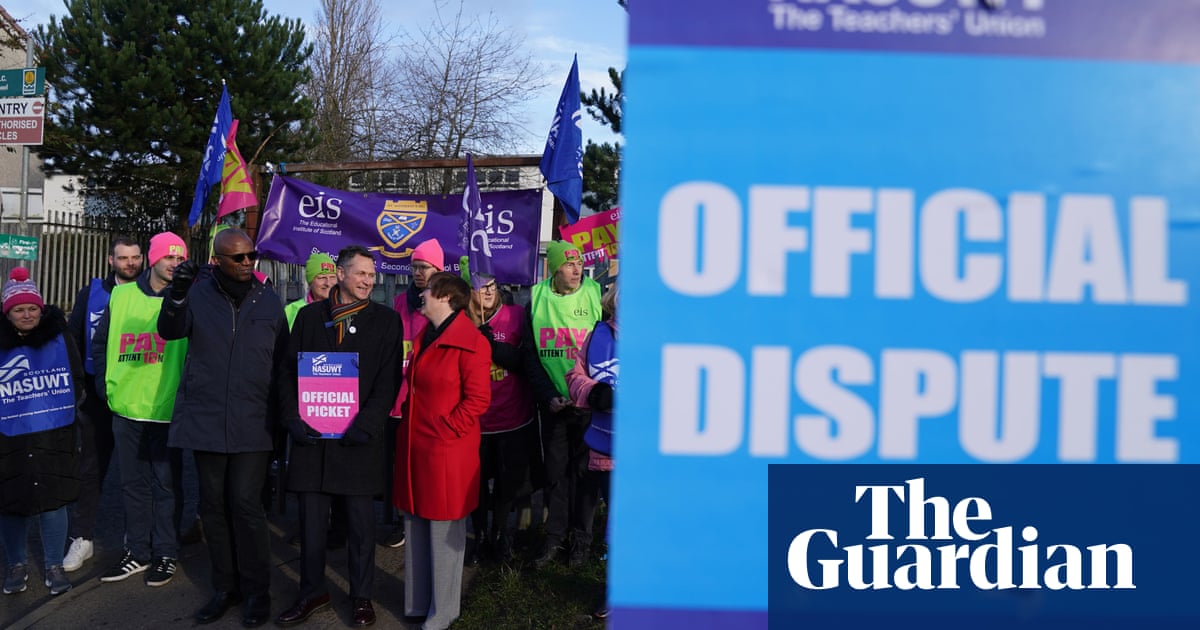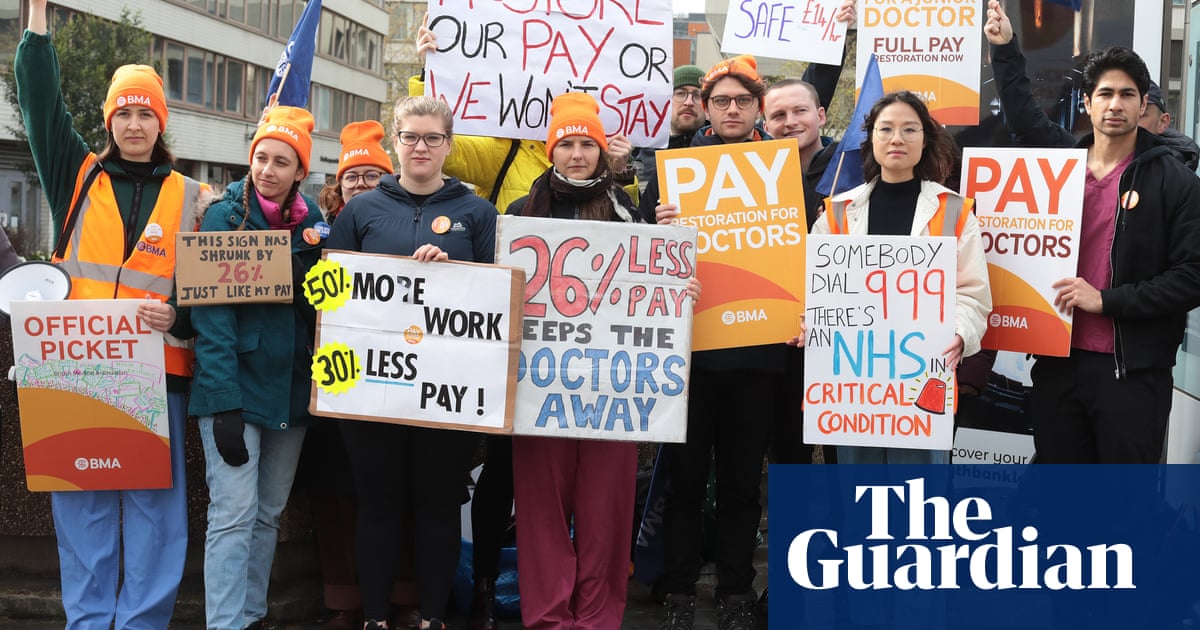
Jeremy Hunt has insisted the government is unable afford a bigger pay increase for nurses and other public sector workers at next month’s budget, despite official figures showing an unexpected boost for the exchequer in January.
Batting away calls for an improved pay offer to break months of strike deadlock, the chancellor said the government finances still remained under pressure after recording a surprise £5.4bn surplus last month.
Asked if the figures released on Tuesday morning made it harder to defend the government argument that bigger pay rises are unaffordable, he told reporters that the “fundamental outlook” for the public purse had not changed.
“Pay rises are recurrent and they have a recurrent cost on the exchequer, and what we see in today’s numbers is not a recurrent change in our national finances,” he said.
“It’s very important to say that we do understand how difficult it is for people on the frontline who’ve seen real terms cuts in their wages. But we have recognised that by the fact that we are giving the average household this year and next £3,500 to help with cost of living pressures.”
In the final snapshot of the public finances before next month’s budget, bumper self-assessed income tax receipts helped to bring in more money for the government than it spent, according to the Office for National Statistics.
The surplus was £5bn higher than the government’s fiscal watchdog, the Office for Budget Responsibility, had expected, although it was £7.1bn smaller than in January 2022. Analysts polled by Reuters were taken by surprise, having predicted that the government would have to borrow £7.8bn in January.
Public borrowing for the year so far was about £30bn lower than forecast by the OBR in November.
“[This] could tempt the chancellor to offer a pay increase to public sector workers as part of his budget next month, hoping to prevent another wave of strikes,” said Michal Stelmach, a senior economist at the accountancy firm KPMG UK.
Paul Nowak, the general secretary of the TUC, said the figures showed the government was “running out of excuses” to break the deadlock on strikes.
“Jeremy Hunt must come out of hiding and help break the deadlock on public sector pay. After 13 years of pay cuts and pay freezes nurses, teachers and millions of other public servants are at breaking point,” he said.
“If ministers don’t provide a fair pay settlement, the staffing shortages crippling our schools, hospitals and other frontline services will just get worse.”
However, on Tuesday there was a sign of some progress in the dispute over nurses’ pay, with the announcement that ministers and the nursing union will hold “intensive talks” on Wednesday to try to resolve the increasingly bitter dispute.
Government coffers were increased by £21.9bn of self-assessed income tax receipts, the highest January figure since monthly records began in April 1999. They were offset partly by substantial spending on energy support schemes for households and businesses to cushion the blow of rising energy prices, and large one-off payments relating to historic customs duties owed to the EU, the ONS said.
However, the Institute for Fiscal Studies said the cost of energy support was less than expected: “While expensive, the energy support schemes introduced in the last year are actually likely to cost less than forecast in November due to a combination of lower wholesale energy prices and a milder winter.”
Ruth Gregory, an economist at the consultancy Capital Economics, said the figures suggested Hunt “will have some wriggle room in the budget to fund near-term tax cuts and/or spending rises”.
However, Hunt suggested he was in no mood for loosening the purse strings after an increase in the national debt. “Getting debt down will require some tough choices, but it is crucial to reduce the amount spent on debt interest so we can protect our public services,” he said.
Hunt said that even though falling oil and gas prices could reduce the cost of the government’s energy price guarantee, they would also lower its income from windfall taxes on energy producers. “The net difference is marginal,” he said.
“To make permanent changes in tax and spending that are recurring year in year out you need a more fundamental change in national finances, which I’m afraid we haven’t.”
Downing Street also played down the prospect of tax cuts, despite pressure from backbench Conservative MPs calling on Rishi Sunak to do more to support economic growth. The prime minister’s official spokesperson said borrowing remained close to a record high, while “significant uncertainty and volatility” remained.
Interest payments on government debt have risen sharply in recent months because of the effect of higher inflation on index-linked gilts. Debt interest payable rose to £6.7bn, the highest January figure since monthly records began in April 1997. However, despite a rise compared with a year earlier, economists said borrowing costs had not risen by as much as feared in November.












